- Home
- Jeff Mariotte
Serpents in the Garden Page 12
Serpents in the Garden Read online
Page 12
“And if you do not?”
Then Grumm would make another flyby in another week. At some point, however, the Captain Cook would have to leave the vicinity, and Kirk would either be on it or he’d be stranded. “Then I’ll stay a while longer,” he said at last. “But not much longer. I have . . . other obligations.”
“A family?” Meena asked. “A woman?”
“There have been women,” Kirk replied. “But no, there’s no one I have to get back to. Not like that.”
“What, then?”
“Again, things I can’t tell you about. Duty. A job that needs doing.”
“You are an honorable man.”
“I try.”
“No.” Now she took her hand off his knee and pressed it to his cheek. Her palm was rough, a working woman’s hand, but her touch was gentle. “You are. And I think . . . I think even if you cannot stay for long, for one night, at least, I would like to be with an honorable man.”
“As long as you understand—”
“I understand perfectly well, James. I am honorable, too, in my way. If I do not offend—”
“Not at all.”
She rose from the bench, took Kirk’s hand, and tugged him to his feet. “Then come with me. My home is not far. We will be honorable together.”
“All right,” Kirk said, letting her take the lead. “Together is good.”
* * *
When they neared the gate into Freehold, Joslen darted out and ran straight into Nyran’s arms. She squeezed him so tightly he was afraid she might rupture something, and she pelted him with kisses. He knew his mother was watching, and he blushed, but at the same time, he enjoyed her welcome so much, he thought going away more often might be a good idea.
Later, they sat on the floor of the home she shared with her father. It was a tiny place, even compared to what she’d had in Rocky Bluff. Joslen slept in the front room, surrounded by the few belongings they had brought with them, plus the pots and cooking utensils they had acquired here. Her father’s room was in back, and he had not left it since he’d become gravely ill. It was left to Joslen to feed him, breaking his food into tiny bites and helping him chew it. The girl was nurse, caretaker, and servant to a man who was conscious only for moments, sometimes with days in between. He had been a big man, stout and strong, but illness had wasted him away. The stench of it wafted into the front room, and Nyran sat near the door, to get as much fresh air as he could. Joslen was accustomed to it, she told him, and hardly noticed it.
Nyran pulled the pot from his pouch and held it toward her. “Is this it, Joslen? The one you wanted?”
Her face answered before words did. “Yes! Yes, that’s it! You really did it? You really went all the way there by yourself?”
“I had to.”
“But it’s so far. And dangerous.”
“I did have to stab a mugato.”
Joslen’s mouth dropped open, forming a perfect O. “You didn’t!”
“There were two of them—the same two the search party killed today. I saw my knife wound on the back of one of them.”
“And you fought them alone?” She plopped down beside him, took the pot from his hands, and kissed him full on the mouth, a long, lingering kiss. He would, he thought, be tasting it for days. “You are my hero, Nyran.”
Pride filled him almost to bursting. To change the subject, he asked, “Can you cure him? With the pot?”
“I do not know. My mother said it had healing properties.” She looked inside. “The roots and herbs are still here, but I am not sure how to use them. I will ask it, though.”
“Ask it?”
“It speaks to me. I told you that! In my mother’s voice. This is how I remember how she sounded.” She looked inside.
“Right,” Nyran said. “You did tell me.” He hadn’t heard the thing speak the whole time he’d carried it, but then, he hadn’t known Joslen’s mother, nor had he asked it any questions. “Is it magic, then?”
“She said no. She was Kahn-ut-tu, and she said everything she did came from nature, not magic. Sometimes, she said, it looks like magic, but only to those who do not understand.”
Nyran didn’t see the difference. There was nothing to be gained from arguing with her, though. And so much to lose.
“You should go, Nyran,” she said.
“Go?”
“I have to try to heal my father. It might take a long time. It might be unpleasant. I would rather be alone. Do you understand?”
He didn’t, not really. “I suppose . . .”
“I love you,” she said. “You were so brave, to do this. To get this for me. I do not deserve such courage expended on my behalf, but I appreciate it.”
“You do,” Nyran said. “Of course you deserve it.”
“No. I am a simple girl, and you are a great hero.”
“Not so great.”
“Great, to me. And soon enough, to everyone. I have no doubt of this.” She kissed him again. “Go, now. I will come to you when it’s done.”
Nyran left the little house, the imprint of her kisses still felt upon his lips. He had her scent on him, too, so much sweeter than the sick odor of the rooms. He didn’t know if he was in love, but thought he might be.
He was thrilled by her praise, by the evident pride she took in him. He was proud of himself, for making the trip, finding the right pot, surviving the elements.
As he walked home through dark roads, though, another thought came to him, carrying its own weight of conflicting emotions. He had come back to Freehold because Joslen was here, and because the point of his journey had been to fetch her pot.
But as much as he liked Joslen, he had discovered something else. As he had always known, there was a big, wide world outside Freehold’s walls. That world held the promise of adventure, of new vistas around every bend, of discovery and danger and excitement. Having seen it—having tested his own courage, and found it adequate to the task—could he be happy, remaining here inside walls thrown up against an omnipresent threat?
He didn’t believe he could. He had tasted the world and found it suited him. He would rather see it with Joslen than without her, if he could, but someday—someday soon—he would have to go back out into it.
That time, Nyran doubted that he would return.
Fifteen
Kirk and Rowland left Freehold before first light. They carried lever-action rifles and followed the path they had taken before. Once the sun lit their way, Kirk recognized landmarks: an igloo-shaped boulder the size of a house; a tree with three trunks emerging from the same root ball; markings made by water running down the side of a cliff, over what must have been eons, that had etched a scene that looked to him like a forest growing upside-down, rooted in the sky, with a canopy that pressed against the earth. These assured him they were on the right path.
Twice, they had to leave the trail and hide amidst the trees, while parties of Victors passed by.
“What do you expect to find there, sir?” Rowland asked at one point. “In Victory?”
“I’m trying to keep an open mind,” Kirk said. “I was there briefly, on my last visit to Neural. Bones—Doctor McCoy—and I went in with Tyree, at night. McCoy and I found a forge, and some gun barrels, none of it of local manufacture. It was obvious then that the Villagers, as they were called, had help from some more advanced civilization. Then one of the Villagers walked in, with a Klingon. We knocked them out and got away fast. I’m not sure I’d recognize either of them if I saw them now, or that they would recognize me.
“So this time, I don’t know what we’ll find, but if it’s evidence of a Klingon presence, I want to be able to take it back to the Federation, or at least to detail it as thoroughly as possible, to prove they’re violating the treaty. Neural won’t be able to evolve at its natural pace as long as the people here are being used by Klingons.”
“You don’t like them at all, do you? Klingons, sir.”
“Never had any use for them,” Kirk said. “There
are probably some good ones—every group has good and bad, right? But I’m not sure I’ve ever met one I’d trust for an instant.”
“I’ve never met one at all.”
Kirk regarded the lanky young man. They were picking their way down a dry creek bed, which cut an easier path along a steep slope than the alternative, littered with loose stones and sharp drop-offs. “You haven’t missed much, Giancarlo. If you don’t meet any on this trip, I’m sure that’ll be fine with Shonna, too.”
“Yes, sir.”
“You miss her?”
“Of course.”
“Let’s get this done, then. Sooner we finish, the sooner you’ll be home.”
“Do you really think we’ll make it home, Admiral?”
“Of course. Don’t you?”
“I don’t know. I mean, Hay and Burch were trained security officers, and look what happened to them.”
“I regret that more than I can say. But it doesn’t have any bearing on our chances.”
“Maybe not,” Rowland said. He stepped around a large rock in the streambed, which had rolled a little when he’d tested it with his foot.
Rowland, descending a few feet ahead of Kirk, tried another stone. It too rolled down the slope when the weight of his foot released it from his moorings. “Do you know what the ‘angle of repose’ is, Admiral Kirk?”
“I’ve heard the phrase,” Kirk replied. “Climbers and mountaineers use it sometimes. But I’m not sure I know the dictionary definition.”
“It’s an engineering term. That’s what I studied at the Academy, sir, geophysical and astrophysical. It describes the angle at which soil settles instead of slippin’, or the maximum angle at which an object can rest on an incline without slidin’ down.” Rowland crouched down and held a rounded stone against the creek bed. “See this rock? Well, it’s too steep here.” He released the stone, and it tumbled down the bed. He moved forward a couple of feet, to a spot where the angle lessened, and picked up the same stone. “But look here.” When he released it this time, it stayed put. “Here, it’s at its angle of repose. It won’t go down on its own. That’s a rough example, and the angle isn’t precise—it could be that another couple of degrees wouldn’t make a difference. But that’s the gist of it.”
“It’s interesting, but what does it have to do with our present circumstances?”
“I was just wonderin’,” Rowland said. “Have we passed that angle? I don’t mean this hill, I mean on our mission here. Are we already unmoored, and just gonna go crashin’ down a slope that necessarily ends in our deaths? Or are we still stable on the slope?”
“I guess we can’t know that,” Kirk said. “Until we start sliding, or we don’t.”
“That’s what bothers me, sir. Not knowin’.”
Kirk reminded himself that Rowland had not seen any real action before this assignment, and this was clearly not the kind of thing he’d expected when he signed on as an admiral’s flag aide. “At best,” he said, “we can only engage in somewhat informed speculation about anything that hasn’t happened yet, in any area of life. This one is no more certain—or uncertain—than any other. I understand that the stakes seem particularly high, especially given what happened to Burch and Hay. But I assure you, I’ve been in plenty of equally dangerous situations, and worse. And I’m still here to tell about it.”
Rowland kicked a stone—one that had apparently settled at its angle of repose, since it was not rolling or sliding anywhere—and it skittered into the thick grass at the edge of the creek bed. “Thank you, Admiral Kirk,” he said. “It’s good to know that.”
“You’re welcome. And Rowland? It might not fly at headquarters, but for the duration of this mission, you’re welcome to call me Jim.”
Rowland broke into the first smile Kirk had seen on him in days. “Well, I appreciate that, Admiral Kirk. I truly do.”
* * *
A scant few years earlier, Victory had been a sleepy village. Its architecture had reminded Kirk of pictures he’d seen of early California, during the days when Spanish missionaries, backed up by Spanish muskets, had built settlements that resembled, at least in the broad strokes, those they had left behind on another continent.
Now, Victory was well on its way to being an actual city, and an industrial one at that. The buildings were still crude, mostly constructed of stone and timbers and mortar. But they were numerous, and sprawling far beyond the original village’s footprint. They were arrayed on roads paved with stones, the hard edges of which had not yet been worn down by the passage of feet and weather and time. They were gray, but whether by natural coloration or from caked-on soot deposited by the billows of smoke from the smelter stacks, Kirk couldn’t say. Some of the houses had glass windows. Most had chimneys, but the day was warm and those chimneys did not add to the haze overhead. Electric lights showed in some windows, but more were lit by candles or oil lamps.
There were no guards at the city’s edge, no soldiers or fortifications of any kind. There was only the valley and the open, grassy plain, and then a bare, rocky stretch where the grass had given up, and then a low stone wall surrounding the first of the buildings. These were not homes, but places with obvious functions: storehouses, a slaughterhouse surrounded by animals Kirk had never seen gathered in fenced pens, a couple of factories, one with wooden furniture piled high in an open doorway and another one churning out what looked like rifle barrels, though he only got a glimpse inside. He and Rowland walked past quickly, aware that their clothing was all wrong, that if they were spotted they’d be immediately apprehended or killed.
When they saw someone coming their way, they ducked into an alley between a pair of large, two-story buildings of indeterminate nature. On the other side of the alley, they spotted the first structure that was recognizably a residence. It was much smaller, a single story, encircled by a waist-high adobe wall. Behind it, a fenced yard contained a couple of animals like the ones they’d seen back at the slaughterhouse, about the size of sheep but with leathery skin, pushed-in faces, and six legs.
“Those are sure some ugly beasts, sir,” Rowland said.
Kirk couldn’t argue. He simply nodded. “I don’t want to terrorize anyone,” he said. “But if an adult male lives there, we might be able to find some more suitable attire.”
“We show up looking like we do, we’ll terrorize somebody for sure,” Rowland replied. “I’m guessin’ they don’t have any guards posted because they don’t expect anybody’d be stupid enough to come into town on purpose.”
“That’s how I read it, too. The Freeholders stay far away. Anyone else who’s been victimized or enslaved by them would do the same. Unless they could band together in a considerably larger force, the Victors don’t need to worry about an attack from outside. They’ve probably got their resources marshaled around the mine, to make sure the laborers don’t escape.”
“You think we should go for it?”
“Maybe no one’s home,” Kirk said. “That’d make it easier.”
“We can hope,” Rowland said.
When they were sure the roadway was clear, they darted out of the alley and across to the house. Vaulting over the wall, they reached the front door simultaneously. Kirk stepped back and let Rowland go first, raising his weapon to cover the younger man. Rowland worked the latch on the door, and it opened easily. He went inside. Kirk followed, closing the door behind him. In a front room they both froze, listening. After a few moments, they heard a voice.
“Who’s out there?” it called. It sounded like a man, and his tone was challenging, angry, maybe a little scared but not very. The voice was followed by heavy footfalls from farther back in the house.
“Hello, sir,” Kirk said. “We are not here to hurt you, or anybody. We are armed, but only for our own protection.”
“Who are you?” the voice demanded. The footsteps came closer, and then a man heaved into view in the room’s far doorway. He was enormous, filling the space and then some, a good head taller than Kirk
, at least, and probably weighing in at more than three hundred pounds.
Kirk leveled his rifle at the man, though he appeared to be unarmed. He caught Rowland’s eye briefly, then returned his full attention to the big man. “This is your home?” he asked.
“It is. Again, who are you? What do you want? You look like Hill People.”
“We are dressed like them, that’s true. But we are not from . . . anywhere around here. Actually, that’s why we’ve come, and I have to apologize for barging in, and for the weapons. I’m sure you understand, dressed as we are, why we have to take certain precautions.”
“I understand that if you did not have those weapons, I would be heaving your carcasses out my door right now.”
“That may well be true,” Kirk said, trying to maintain an even tone. “But we do. So tell me . . . is there, perhaps, an adult male smaller than you living here? We’re in need of clothing, but I doubt that yours would work.”
The man barked a surprised laugh. “You little men? You could wear my wife’s clothing, perhaps. Or my son’s.”
“How big is your son?”
The man held his hands about eighteen inches apart. “He is a baby.” He started laughing, then wheezing, red-faced, tears rolling down his cheeks.
“Admiral, I don’t think we’re gettin’ anywhere here,” Rowland said.
Kirk couldn’t disagree. “Sir, we don’t mean any harm. To you or your city. I know you have only my word on that, but it’s true. I don’t want to hurt you, but I can’t have you alerting anyone about our presence here. And we still need a change of clothes. Do you have any suggestions?”
The man wiped his eyes with his massive fingers and struggled to bring his laughter under control. Kirk didn’t think he remembered anyone facing two armed strangers ever having such a response. The man waved a hand toward the side of the house. “There,” he said. “That house. Two men live there. Small ones, like you. They are never home during the day. You will find clothing inside.”
“Thank you,” Kirk said. He eyeballed the big man. He had watched Spock render people unconscious with a Vulcan nerve pinch, dozens of times. But he had never been able to fully master it himself, despite Spock’s lessons, and he wasn’t sure he could get the right angle on this guy. And even if he could, whether he could get through the man’s protective layers to reach his nerves. “When will your wife be home?”

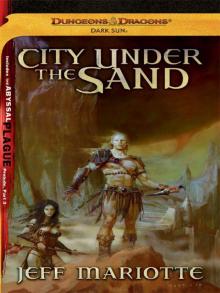 City Under the Sand
City Under the Sand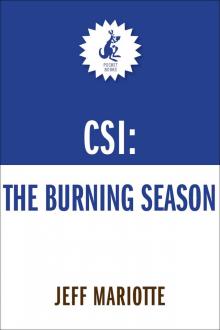 The Burning Season
The Burning Season Sanctuary
Sanctuary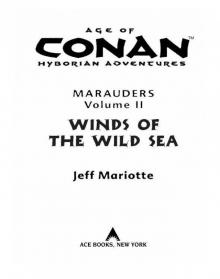 Winds of the Wild Sea
Winds of the Wild Sea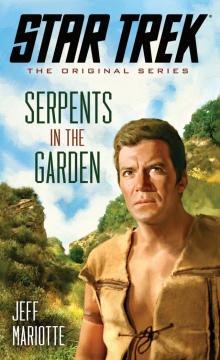 Serpents in the Garden
Serpents in the Garden Close to the Ground
Close to the Ground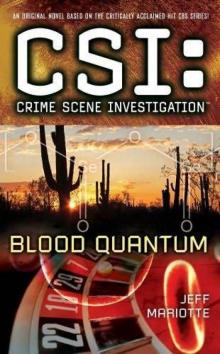 Blood Quantum
Blood Quantum Brass in Pocket
Brass in Pocket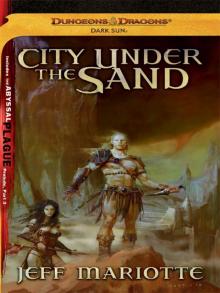 City Under the Sand: A Dark Sun Novel (Dungeons & Dragons: Dark Sun)
City Under the Sand: A Dark Sun Novel (Dungeons & Dragons: Dark Sun)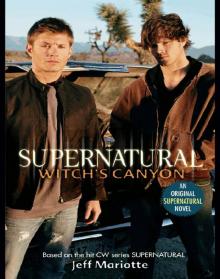 Witch's Canyon
Witch's Canyon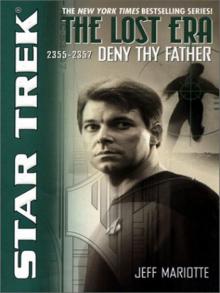 STAR TREK: The Lost Era - 2355-2357 - Deny Thy Father
STAR TREK: The Lost Era - 2355-2357 - Deny Thy Father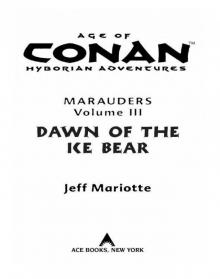 Dawn of the Ice Bear
Dawn of the Ice Bear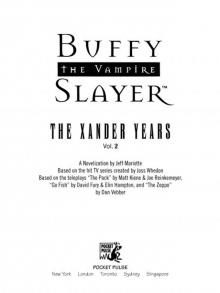 The Xander Years, Vol.2
The Xander Years, Vol.2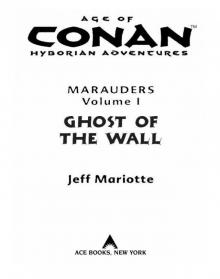 Ghost of the Wall
Ghost of the Wall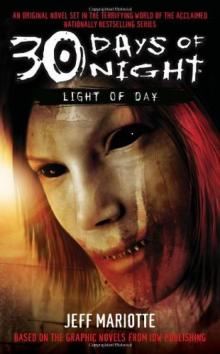 30 Days of Night: Light of Day
30 Days of Night: Light of Day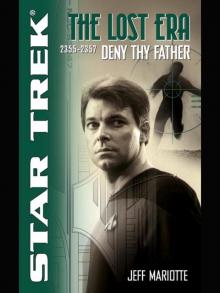 Deny Thy Father
Deny Thy Father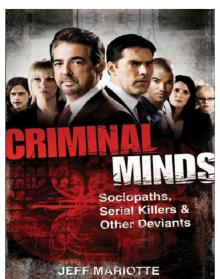 Criminal Minds
Criminal Minds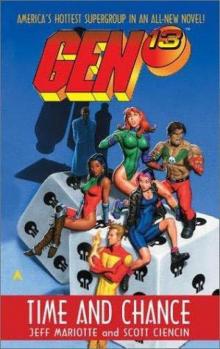 Time and Chance
Time and Chance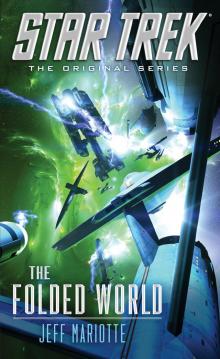 The Folded World
The Folded World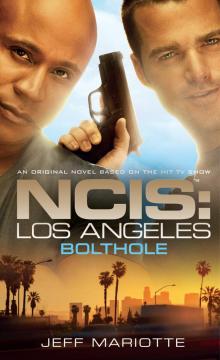 Bolthole
Bolthole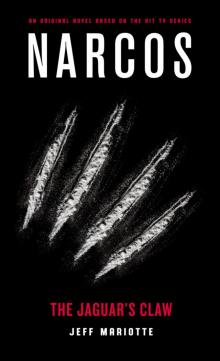 Narcos
Narcos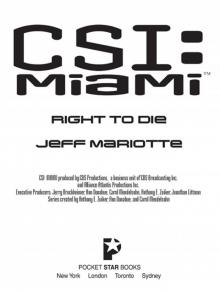 Right to Die
Right to Die